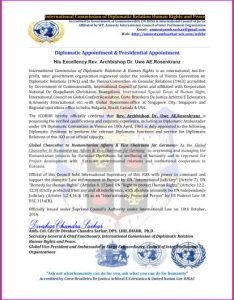CRUCIAL QUESTIONS No. 5  HOW SHOULD I Live IN THIS WORLD? R. C. SPROUL Reformation Trust PUBLISHING A DIVISION OF LIGONIER MINISTRIES · ORLANDO, FLORIDA How Should I Live in This World? © 1983, 1999, 2009 by R. C. Sproul Previously published as Ethics and the Christian (1983) and as part of Following Christ (1991) by Tyndale House Publishers, and as How Should I Live in This World? by Ligonier Ministries (1999). Published by Reformation Trust a division of Ligonier Ministries 400 Technology Park, Lake Mary, FL 32746 www.Ligonier.org www.ReformationTrust.com All rights reserved. No part of this publication may be reproduced, stored in a retrieval system, or transmitted in any form or by any means—electronic, mechanical, photocopy, recording, or otherwise—without the prior written permission of the publisher, Reformation Trust. The only exception is brief quotations in published reviews. Unless otherwise noted, Scripture quotations are from The Holy Bible, English Standard Version®, copyright © 2001 by Crossway Bibles, a publishing ministry of Good News Publishers. Used by permission. All rights reserved. Scripture quotations marked NIV are from the HOLY BIBLE, NEW INTERNATIONAL VERSION®. NIV®. Copyright © 1973, 1978, 1984 by International Bible Society. Used by permission of Zondervan. All rights reserved. Scripture quotations marked KJV are from The Holy Bible, King James Version. Library of Congress Cataloging-in-Publication Data Sproul, R. C. (Robert Charles), 1939– [Ethics and the Christian] How should I live in this world? / R. C. Sproul. p. cm.–(The crucial questions series) First published as: Ethics and the Christian, 1983. Following Christ. Wheaton, Ill.: Tyndale House Publishers, 1991. How should I live in this world? Ligonier Ministries, 1999. ISBN 978-1-56769-180-1 1. Christian ethics. I. Sproul, R. C. (Robert Charles), 1939– Following Christ. II. Title. BJ1251.S67 2009 241–dc22 2009018824 Contents PREFACE One—ETHICS AND MORALS Two—REVEALED ETHICS Three—LEGALISM AND ANTINOMIANISM Four—THE ETHICS OF MATERIALISM Five—THE ETHICS OF CAPITAL PUNISHMENT AND WAR Six—THE ETHICS OF ABORTION Seven—ETHICS AND THE CONSCIENCE Preface Almost every major discussion of ethics these days begins with an analysis of the chaotic situation of modern culture. Even secular writers and thinkers are calling for some sort of basic agreement on ethical behavior. Humanity’s “margin of error,” they say, is shrinking with each new day. Our survival is at stake. These “prophets of doom” point out that man’s destructive capability increased from 1945 to 1960 by the same ratio as it did from the primitive weapons of the Stone Age to the dropping of the atomic bomb on Hiroshima. The thawing of the Cold War provided little comfort. Numerous nations have nuclear arms now or are close to having them. What, besides ethics, will keep them from using these weapons? This stark reality is compounded by the profusion of social injustice in many areas, the rise of international terrorism, and the general decline of personal and social values. Who is to say what’s right and wrong? One technical volume, Thomas E. Hill’s Contemporary Ethical Theories, lists more than eighty theories of ethics competing for acceptance in our modern world. It is not just a matter of “doing the right thing” but of figuring out what the right thing is. This proliferation of options generates confusion in our world and, for many, a sense of despair. Will we ever reach a cultural consensus that will stabilize the shifting sands of pluralism? All this talk of “theories of ethics” may leave you cold. However, ethical decisions enter into every aspect of our lives. No field or career is immune from ethical judgments. In politics, in psychology, and in medicine, ethical decisions are made regularly. Legislative action, economic policy, academic curricula, psychiatric advice—all involve ethical considerations. Every vote cast in the ballot box marks an ethical decision. On what basis should we make these decisions? That’s where the “ethical theories” come in. The Christian may say, “I simply obey God’s Word.” However, what about those issues where the Bible has no specific “thou shalt”? Can we find ethical principles in Scripture, and in the very nature of God, that will guide us through this difficult terrain? How can we communicate these principles to others? How Sproul, R. C. (2009). How Should I Live in this World? (Bd. 5, S. iii–ix). Lake Mary, FL: Reformation Trust Publishing.
HOW SHOULD I Live IN THIS WORLD? R. C. SPROUL Reformation Trust PUBLISHING A DIVISION OF LIGONIER MINISTRIES · ORLANDO, FLORIDA How Should I Live in This World? © 1983, 1999, 2009 by R. C. Sproul Previously published as Ethics and the Christian (1983) and as part of Following Christ (1991) by Tyndale House Publishers, and as How Should I Live in This World? by Ligonier Ministries (1999). Published by Reformation Trust a division of Ligonier Ministries 400 Technology Park, Lake Mary, FL 32746 www.Ligonier.org www.ReformationTrust.com All rights reserved. No part of this publication may be reproduced, stored in a retrieval system, or transmitted in any form or by any means—electronic, mechanical, photocopy, recording, or otherwise—without the prior written permission of the publisher, Reformation Trust. The only exception is brief quotations in published reviews. Unless otherwise noted, Scripture quotations are from The Holy Bible, English Standard Version®, copyright © 2001 by Crossway Bibles, a publishing ministry of Good News Publishers. Used by permission. All rights reserved. Scripture quotations marked NIV are from the HOLY BIBLE, NEW INTERNATIONAL VERSION®. NIV®. Copyright © 1973, 1978, 1984 by International Bible Society. Used by permission of Zondervan. All rights reserved. Scripture quotations marked KJV are from The Holy Bible, King James Version. Library of Congress Cataloging-in-Publication Data Sproul, R. C. (Robert Charles), 1939– [Ethics and the Christian] How should I live in this world? / R. C. Sproul. p. cm.–(The crucial questions series) First published as: Ethics and the Christian, 1983. Following Christ. Wheaton, Ill.: Tyndale House Publishers, 1991. How should I live in this world? Ligonier Ministries, 1999. ISBN 978-1-56769-180-1 1. Christian ethics. I. Sproul, R. C. (Robert Charles), 1939– Following Christ. II. Title. BJ1251.S67 2009 241–dc22 2009018824 Contents PREFACE One—ETHICS AND MORALS Two—REVEALED ETHICS Three—LEGALISM AND ANTINOMIANISM Four—THE ETHICS OF MATERIALISM Five—THE ETHICS OF CAPITAL PUNISHMENT AND WAR Six—THE ETHICS OF ABORTION Seven—ETHICS AND THE CONSCIENCE Preface Almost every major discussion of ethics these days begins with an analysis of the chaotic situation of modern culture. Even secular writers and thinkers are calling for some sort of basic agreement on ethical behavior. Humanity’s “margin of error,” they say, is shrinking with each new day. Our survival is at stake. These “prophets of doom” point out that man’s destructive capability increased from 1945 to 1960 by the same ratio as it did from the primitive weapons of the Stone Age to the dropping of the atomic bomb on Hiroshima. The thawing of the Cold War provided little comfort. Numerous nations have nuclear arms now or are close to having them. What, besides ethics, will keep them from using these weapons? This stark reality is compounded by the profusion of social injustice in many areas, the rise of international terrorism, and the general decline of personal and social values. Who is to say what’s right and wrong? One technical volume, Thomas E. Hill’s Contemporary Ethical Theories, lists more than eighty theories of ethics competing for acceptance in our modern world. It is not just a matter of “doing the right thing” but of figuring out what the right thing is. This proliferation of options generates confusion in our world and, for many, a sense of despair. Will we ever reach a cultural consensus that will stabilize the shifting sands of pluralism? All this talk of “theories of ethics” may leave you cold. However, ethical decisions enter into every aspect of our lives. No field or career is immune from ethical judgments. In politics, in psychology, and in medicine, ethical decisions are made regularly. Legislative action, economic policy, academic curricula, psychiatric advice—all involve ethical considerations. Every vote cast in the ballot box marks an ethical decision. On what basis should we make these decisions? That’s where the “ethical theories” come in. The Christian may say, “I simply obey God’s Word.” However, what about those issues where the Bible has no specific “thou shalt”? Can we find ethical principles in Scripture, and in the very nature of God, that will guide us through this difficult terrain? How can we communicate these principles to others? How Sproul, R. C. (2009). How Should I Live in this World? (Bd. 5, S. iii–ix). Lake Mary, FL: Reformation Trust Publishing.
More readings on: https://rosary2007.wordpress.com/2016/05/24/how-should-i-live-in-this-world/





 Portalbetreiber und Leistungsträger:
Portalbetreiber und Leistungsträger:




